What will be the legacy of the 2023 FIFA Women's World Cup? Well, to put it in the simplest of terms, it is about sexual assault on a professional player.
On August 20, the Spanish women’s team stunned the world when it won their first Women’s World Cup final defeating the tournament favourite England 1-0. However, moments later, their celebratory mood was marred by one of the most horrifying incidents, that too on the global stage. At the awards ceremony of the mega event, the Spanish Football Federation (RFEF) President Luis Rubiales forced himself on Jenni Hermoso and kissed her. This was an explicitly nonconsensual kiss.
The questions that were raised after this incident where along the lines of “If this can happen in the most public way, at the FIFA World Cup final, then what goes behind closed doors when the eyes of the international media are not on the players?”
The answer is: all of it is much worse and it is all complex, but it is certainly not a shock to the women footballers who have been striving to make their mark in the sport. Witnessing the brazen sexual assault, the world is finally listening to what women footballers have been saying for years. The prevalent sexism and misogynistic patterns are seen in the response by FIFA and Rubiales as well, as the latter refused to step down after the incident and resisted the pressure building up against him by the Spanish government. Instead, the bitter irony was that when he justified his assault of Hermosa, he was applauded by a room full of men, including Jorge Vilda, the women's team coach.
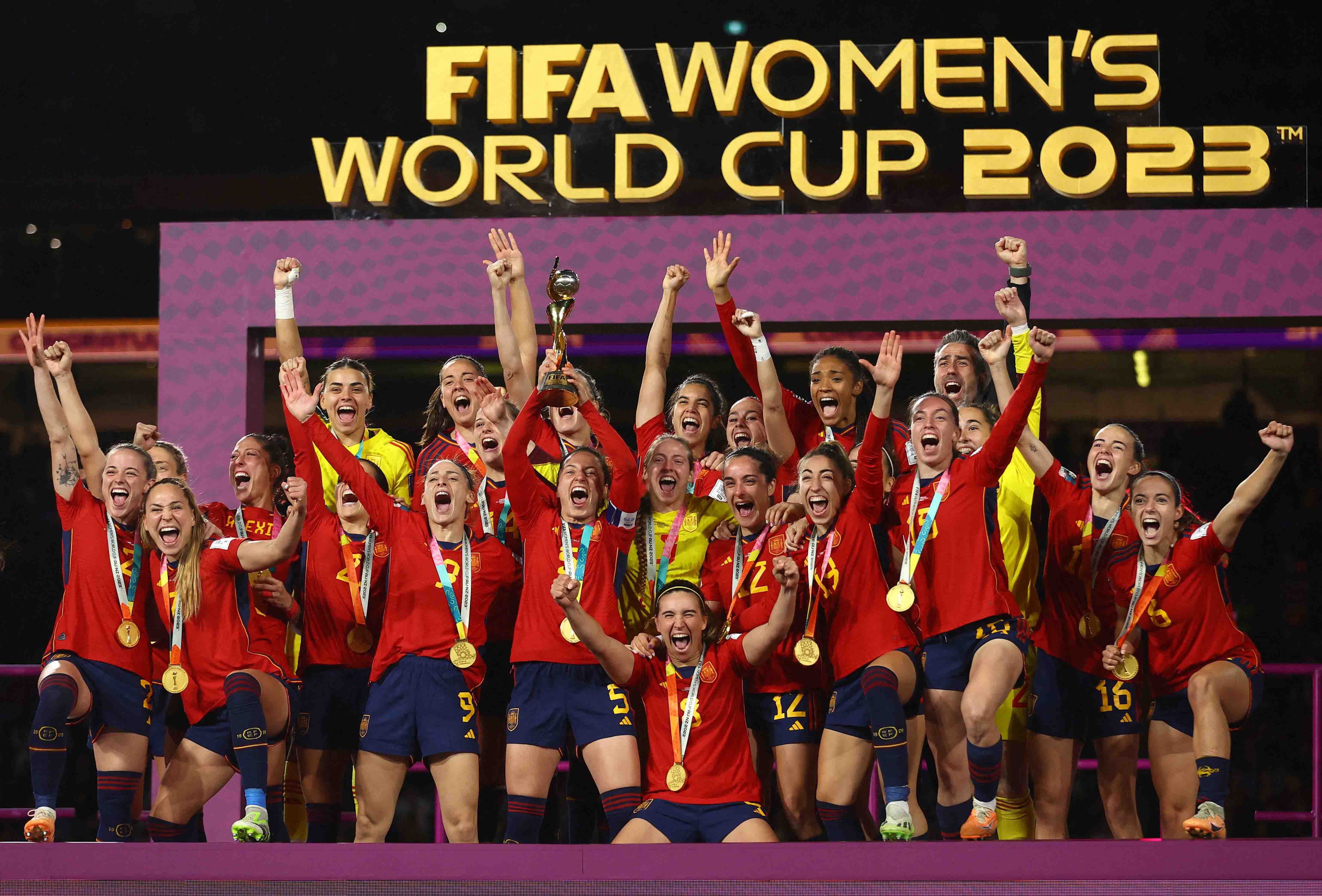
FIFA perpetuates abuse
Renowned journalist Romain Molina believes that FIFA has only enabled the sexism and misogynistic systems in its member associations. Having authored books and done extensive work in uncovering abuse of the Haitian women’s team, among others, Molina said, “FIFA is not going to say anything. We could see that in Haiti because they didn’t suspend all the persons involved it is a very hard process. In Gabon, there was abuse happening on young boys, still no suspension, nothing from FIFA.”
During the World Cup, the coach of the Zambian national team was accused of sexual assault during the training, complaints were sent to FIFA. He was not suspended before the World Cup. The Guardian published the allegation of sexual abuse regarding him. “Other media also published the allegations. He wasn’t suspended at all. In the same way, nothing happened in the cases of Sierra Leone and Mongolia because they aren’t big, but in Spain, it is about the image. So it created something. Also because it is political, the legal chief of FIFA Emilio Garcia is the enemy of the Spanish FA president Rubiales. It is about the image and political. They act so swiftly because it is political and extremely complicated. The only organisation that cares about the players is FifPro,” said Molina.
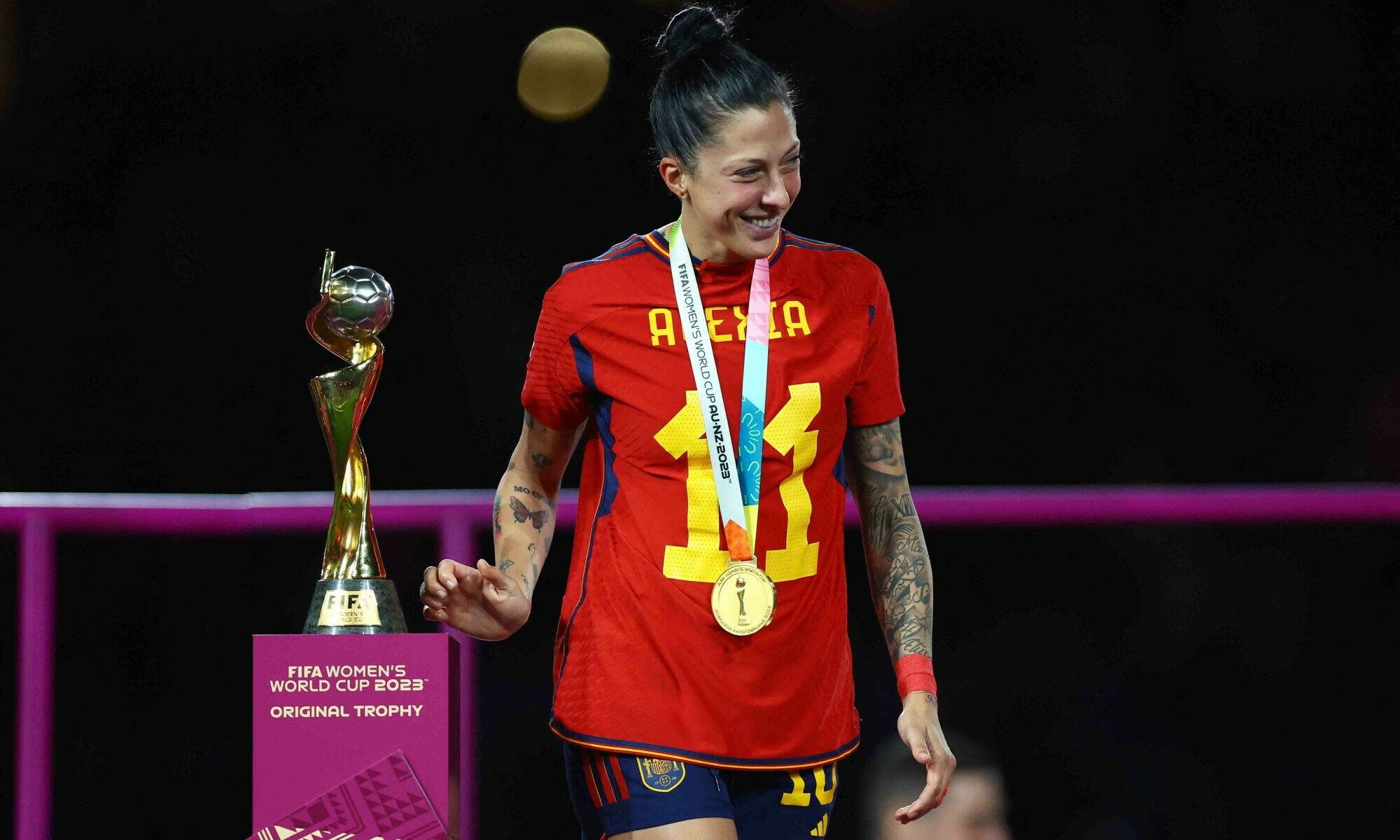
Fighting Goliath
The complicated game of politics and power was not hidden from view in the latest incident of sexual assault by Rubiales.
Adding insult to injury, the Spanish Federation tried to pressure Hermoso to remain silent. They also put out fake responses from her to Rubiales’ relatives. His mother ended up locking herself in church and went on a hunger strike in support of her ‘innocent son.’ All these reactions are classic signs of victim-blaming, bullying, and manipulating the narrative on top of a sexual assault.
The incident and its aftermath were enough to ban Rubiales for life. Yet, on August 26, FIFA provisionally suspended him for 90 days from all activities, as a slap on the wrist, while a disciplinary committee has been set up to investigate further, adding that Rubiales should refrain from contacting Hermoso and should not be seen in her close environment.
It was just last week when finally the interim president of the Spanish Federation sacked Vilda, who had been fiercely criticised by the Spanish players for his controlling and borderline abusive coaching methods. It had all begun last year when 15 Spanish players had officially complained against Vilda’s methods, but all of them were threatened by the Spanish federation. Only three out of the 15 players were called back into the World Cup squad while five were not selected and seven of them refused to play in protest.
Rubiales’ kiss only scratched the surface of the culture of sexism rampant in Spanish football, as well as on international level.
In Pakistan’s football world, the professional women players had been protesting against their coach, too, after they had played their first tournament in eight years. What the Pakistani women footballers had expected to be their moment to shine, and a second half of their careers, was all snatched away by a coach, much like Vilda: Adil Rizki.
The first indication of something simmering under the surface was the isolation of the players. At the time, this correspondent had begged the Pakistan Football Federation (PFF) Normalization Committee (NC) for an interview with the players to talk about their return to international football after a hiatus of eight years. But to no avail. The team was stonewalled from the media. No details emerged about how they survived the last eight years, hanging by the hope for things to improve, while the federation plunged into the depths of crises with two bans in less than five years.
The PFF NC, chaired by Haroon Malik, had done exactly what Rubiales had done: ignored what the players were saying. Furthermore, those who raised their concerns and wrote letters to him after coming back from the South Asian Championships were all axed from the next tour. Meanwhile, Malik ended up showing Rizki the letter that the players had written, leaving them vulnerable to the whims of a grossly underqualified national coach. It is curious to observe that the PFFNC chose a man to coach the women's team who holds only a License B (which entails a minimum of six months’ coaching experience) from UEFA, a qualification that is not preferred for a national team coach on any level in international football. There has been no female coach on the bench until only the last tournament they played, the historic Olympic qualifiers, in Tajikistan.
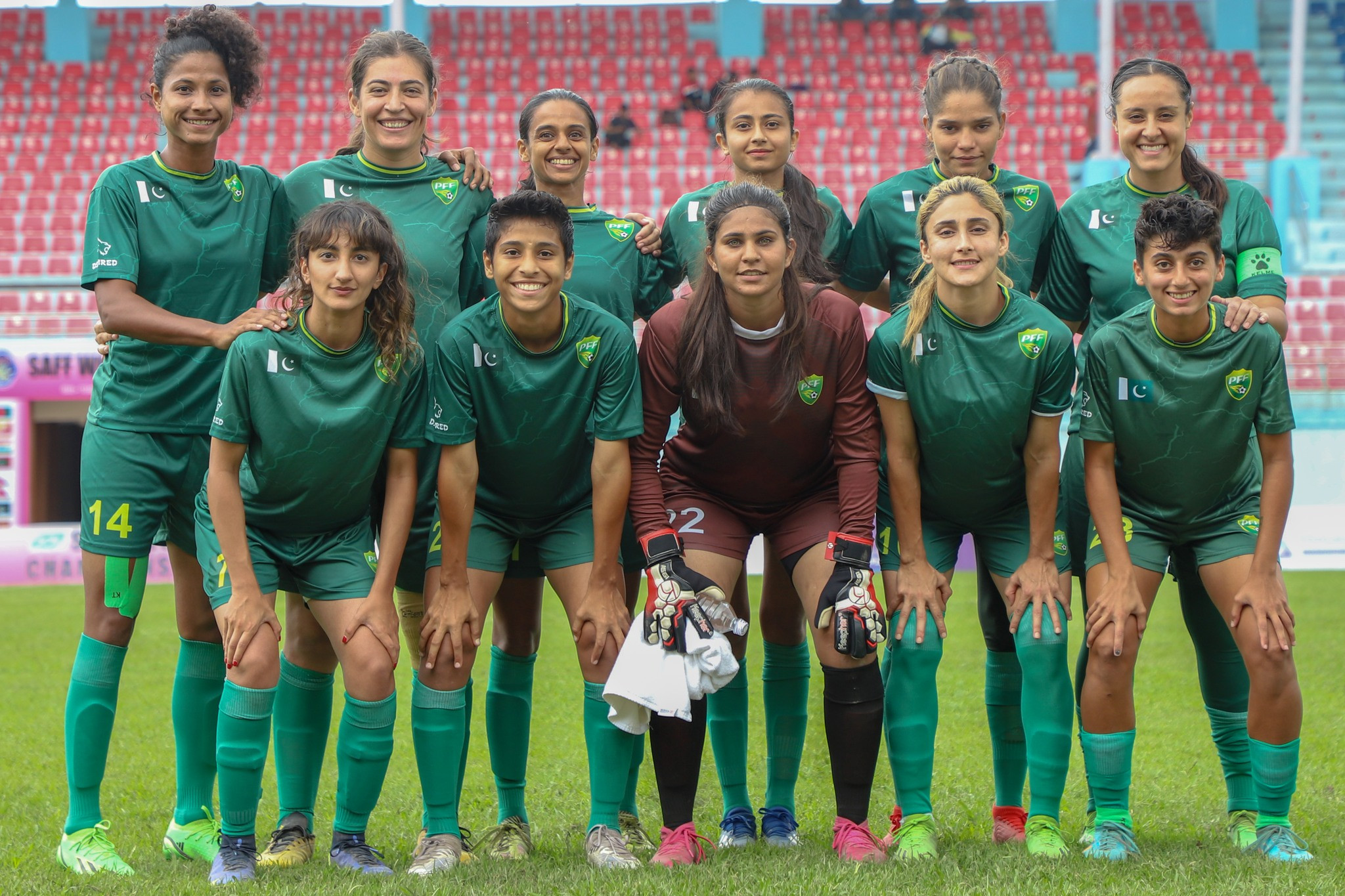
Other than having an underqualified coach, it was the environment that made most women players feel unwanted, demeaned, and degraded while being on national duty. For starters, there had been a clique of English-speaking players whom the coach preferred as he also chose to speak only in English, a language that only players coming from a certain background could understand.
There is a class system that exists and promoted while the presence of Diaspora players only highlights the preferences of the coach and the federation, and prove that their priorities do not include developing women’s football in Pakistan or building a team that is worthy of praise neither in attitude nor in performance. Then was also an environment of pitting players against each other instead of supporting one another as a unit.
“When you are a part of the team and you are playing there is also a bit of a naivety [about reading the red flags],” former Pakistan Women’s football team captain Hajra Khan told The Express Tribune, as speaking up about the toxic culture cultivated by the PFF NC and the coach that it had been backing. “For me and the players the focus is on the task at hand, to get better, to be a team player and to perform well,” she said.
Hajra is one of the most recognized sportspersons in the country, especially among women. She is also the first Pakistani to have scored 100 club goals and has managed to grow her game and repertoire internationally, participating in projects in which she broke world records as well. As a forward, Hajra had been most impressive but it was not enough for Rizki. He had her play as defense instead of her usual position. She took it in stride and considered it a challenge because she had the passion to give her all for the country and for her dream to see Pakistan play football again after waiting for eight years.
Hajra had captained Pakistan at the 2014 South Asian Football Federation (Saff) championship, which turned out to be the last international event for the women’s football team until September 2022. She was among the players who had voiced their concerns about lack of team spirit, lack of feedback and the constant devaluing of players in the camp and during Saff event last year.
“I could feel what the Spanish women were feeling, because they had been going through the same thing as we had been when I was a part of the team,” said Hajra, who now plays for Pakistan Army women's football team which competes in the National Women Football Championship. Systemic misogyny works insidiously to break down the spirit of women. “When all of this is happening, one must think of wrapping things up as gracefully as possible. But it was horrible. There was verbal abuse, neglect, there was bullying. There was a lot of waste of money as well. We had [our] captain Maria [Khan] screaming in the locker room. That was not the environment to cultivate players and bring out quality performances,” she said.
“The Pakistan team had not been a unit at all,” laments Hajra. There was no feedback from the coach during the training, and only those who were to play in the match were given attention, the rest of the players were completely ignored. Some players were never even given a chance. “For example, during the practice sessions, they would always only choose three people for free kicks and ignore the rest, ignore those who have actual set-piece records. Here there was no constructive feedback. All that happened was shouting. The more we tried to get feedback, the more we saw that it was like, meh,” Hajra said.
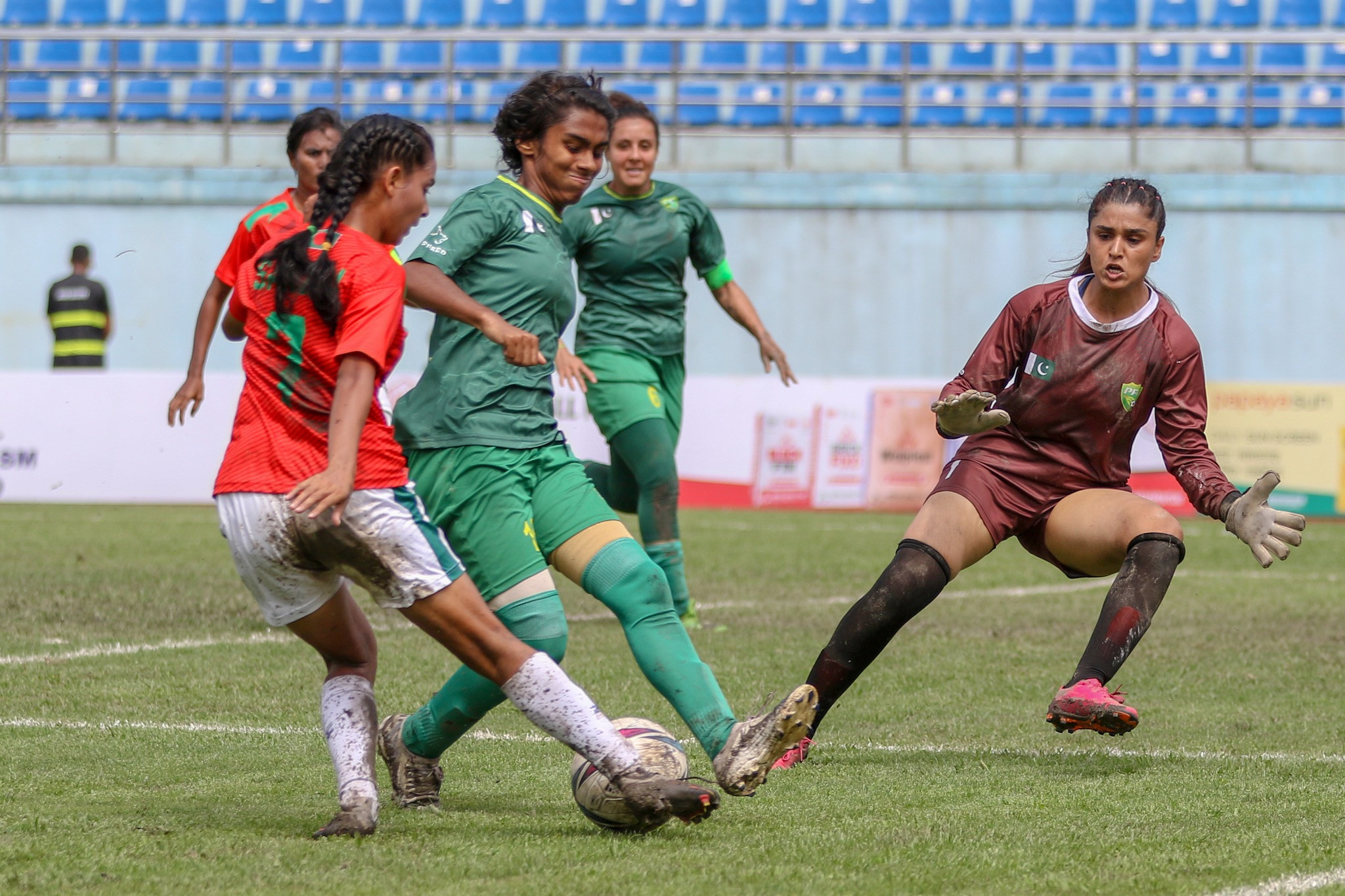
“I understand that adrenaline is high that everyone is psyched but that is not the way to go. The defense starts at attack, there were no midfielders, and eventually when you start to watch the match you can tell that these were futsal players,” explained Hajra, pointing out that the national team coach had been openly saying that he would only include girls who can play football, but he is going around playing futsal tournaments everywhere. His strategy begged the question how can he then ignore the players who have been dedicated to football all their lives and have proved their game?
Several other players have also spoken about the nepotism in the PFF NC and the process of selection of players for the national side. “If you look at it, there are so many Karachi City FC players, they had a player who had been constantly injured but she is always a part of the team. How are these Diaspora players being chosen, what is their quality?” questioned Hajra.
With Rizki at the helm and Maria calling the shots, most of the seasoned players, who have performed superbly for Pakistan prior to the current setup, were sidelined. Players like Hajra only proved their worth with stellar performances at the national Games in May after they were ignored for the Olympic qualifiers in April. Hajra scored six goals in three matches and won a gold medal too with her Army team.
But Rizki was unimpressed.
Meanwhile, The PFF NC run their operations underhandedly and they keeping players isolated when it comes to the women’s side. They did not announce the squad on time, or give the camp details. They even kept hush when the team was taken to Dubai and Abu Dhabi for training. It was discovered only through the local UAE media that was covering the training tour because the Pakistan team was playing friendly matches with their national side.
“There are people benefiting unfairly, they are privileged, and they do not realise that they are benefiting at the expense of those who actually have played for Pakistan, who have the talent and who have a lot more to offer,” said Hajra. “It is all a circus. We all know that there is corruption from top to bottom. We know who is friends with whom. And we have the Asian Football Confederation and we have FIFA; if you have contacts, then you will get what you want, nobody cares about the rest.”
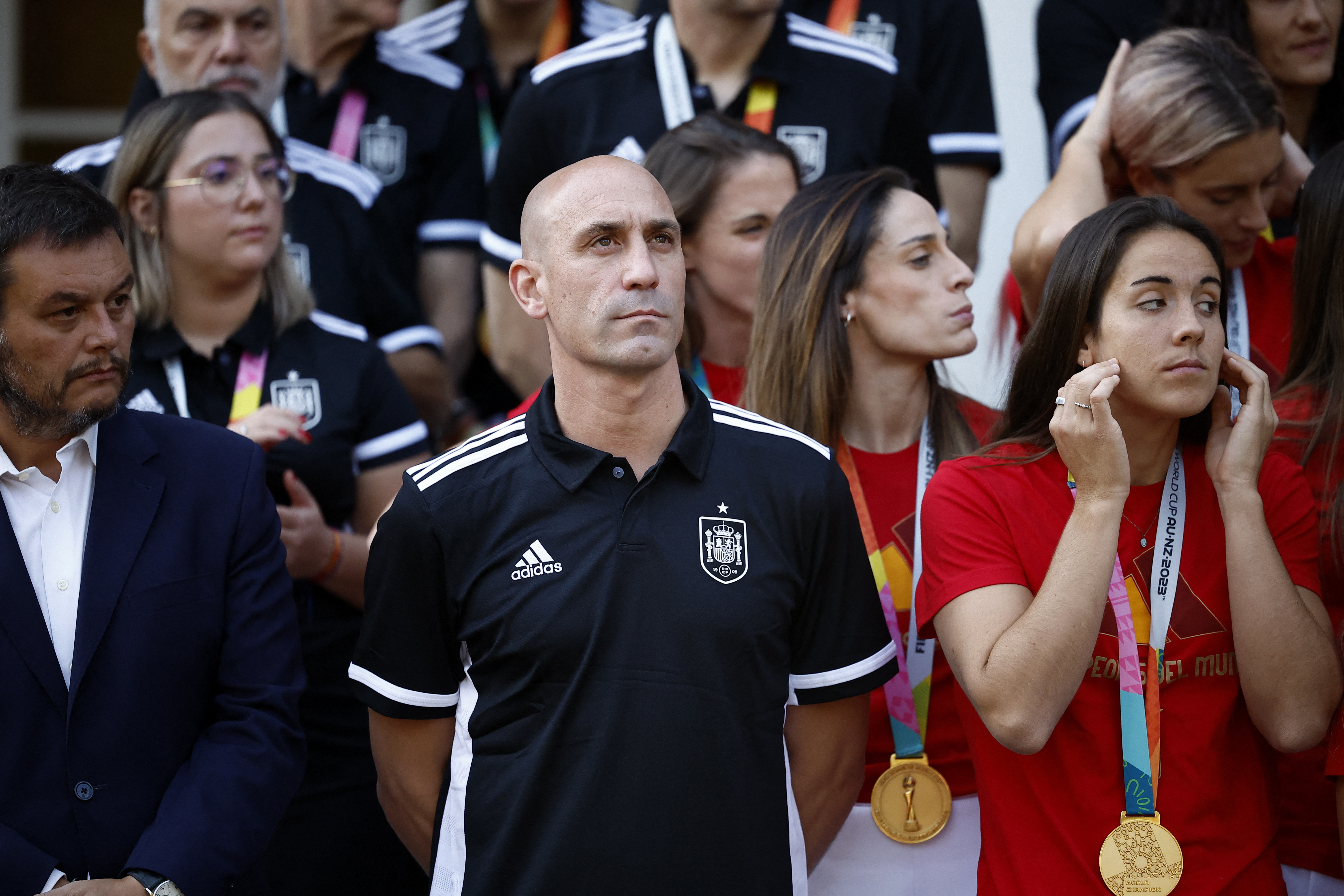
She added that the players who did stick around to play in the national team with Rizki’s setup had to slowly see themselves excluded from the team after the Saff Championship while the players that are being groomed by Rizki are showing a temperament that is extremely arrogant. They are not allowed to share the details with their family and friends and there seems to be no explanation as to why there is never any transparency from the PFF NC about the camps and training for the women’s team.
“The Spanish women's team and their story really resonated with me because considering what we experienced in the camp and what they were talking about was the exact same kind of temperament the [Pakistan] team is carrying. The [Spanish women] were at a point where they can be heard, they spoke up because these young ones can see that this can also happen to us, so it is our duty to speak up morally and ethically. The Spanish women deserved the limelight, but they had to deal with misogyny and sexism, and this demoralises the players. A lot of players in Spain are standing up now, so kudos to them,” said Hajra.
However, when it comes to the Pakistani context, she added that eventually things spill out and that the reality of the situation cannot be ignored for long.
“They promised a lot of things, the development of the women’s game, but when we look at their actions there has been nothing. No women’s league either, but there are people like Rizki and others who are making money with their own ventures, why would they want this to change?” said Hajra. “They have enabled behaviours that are detrimental to women’s football. They are enabling this cycle because it is benefiting them.”
The PFF NC had also hired a manager for the national women’s team who turned out to be a player from Rizki’s club. Similarly, other appointments were also made on the whims of Adil and Maria which the PFF NC chairman Malik approved.
Trials for the most experienced
Pakistan’s most capped goal-keeper and eight time national championship winner Wapda captain Syeda Mahpara echoed Hajra’s concerns. She shared that her experience in the camp was terrible and she was eager to play despite it because playing for Pakistan meant everything for her, and she had been keeping herself physically fit in order to make the best of the opportunity as well.
“At the Saff championship, which was exactly a year ago, I was very upset. I was very heartbroken and angry. There had been three goalkeepers in the squad and I can appreciate good competition, I am up for merit. That is why it made no sense that despite my credentials and experience, I was still treated as the second goalie. There was no fair chance because it looked like they had already made up their minds to render us useless,” she said.
“I didn’t understand their logic of taking trials of the national players as well who had represented Pakistan before. They can and should take our fitness tests but we were treated worse than the inexperienced players,” she pointed out
At the Saff championship, Mahpara says the senior players were used us on purpose. “We were playing India and Bangladesh, the match that we played against the Maldives was not at all a big one, our opponents were just a very weak side, but they used our batch against India and Bangladesh and then made it an excuse that we can’t play and very systematically discarded us when we showed that we will not comply with rules that are unfair. The team they ended up choosing for the next event was so much weaker. Had they played against India and Bangladesh, they would not have been hyped by the PFF NC and others because they knew they were not great,” she explained.
“We were also kept like prisoners during our camp with Rizki. For example, we couldn’t freely communicate with anyone back home. We were told not to talk to the fans if they recognise us. We could not take pictures with them. But [Rizki’s] favourite players had always gotten the pass to do whatever they want. Anyone outside of that group was shunned. We were degraded in so many ways, like the coach would not speak to me the entire tournament except when he would want to insult me.”
“I slipped into depression. How can one give an impressive performance when one is feeling ostracised or feeling that nothing they do will ever be good enough? I also heard from different younger players later that the rough language had only gotten worse.”
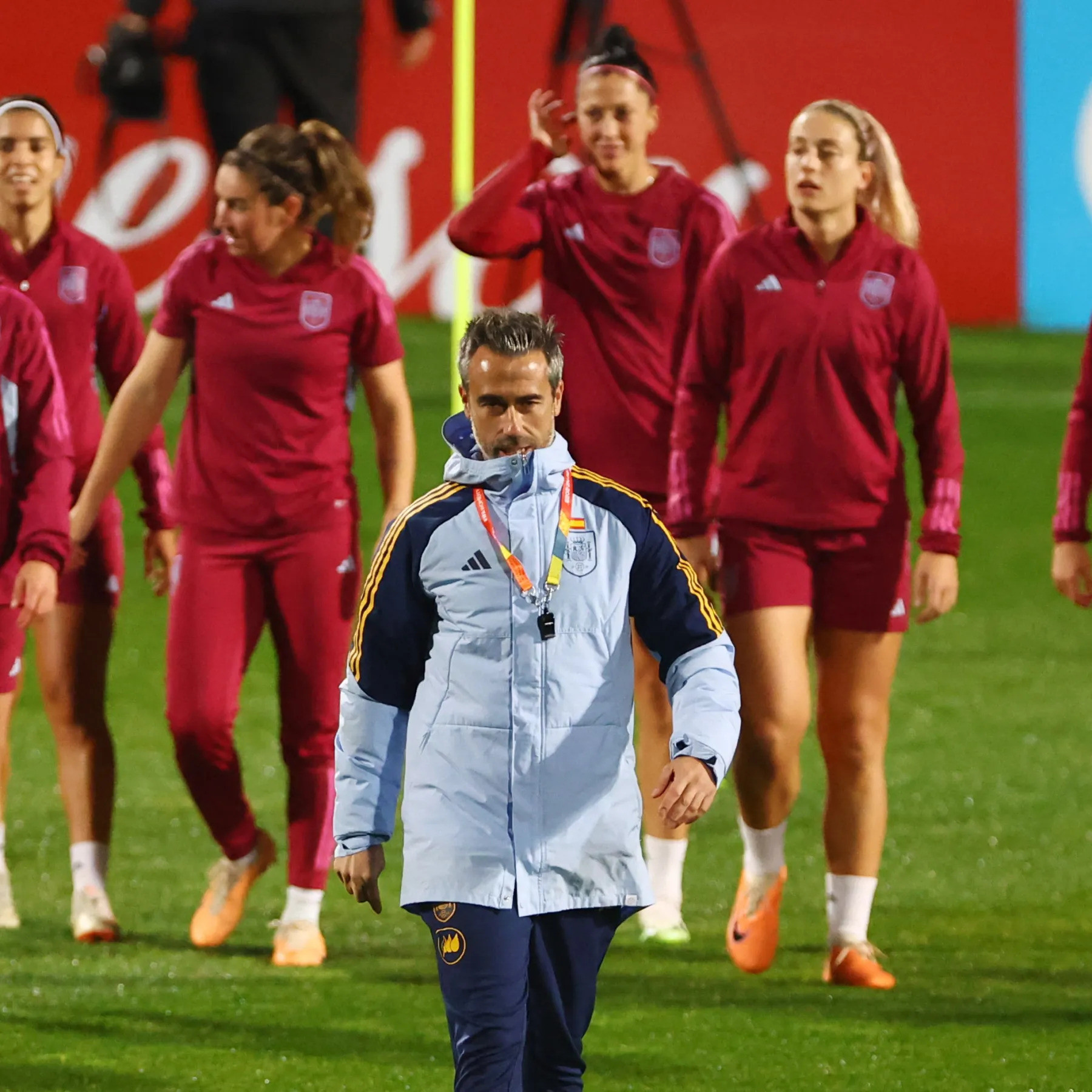
Returning from the Saff championship, the players found out that trials will be held for the next event, the Four Nation Cup in Saudi Arabia. It was a tournament only the newest formed teams were playing. “Again, the PFF NC put the condition on us that we have to come to trials or else we cannot be the part of the team. It was frankly insulting because we as international players had to be at the trials again, they knew what our history had been how we play. I didn’t see Maria at the trials, so you can see the double standards there.
In December, Malika-i-Noor, Nizalia, Atiqa, Nisha and Mahpara left for the trials at fajr time. When they reached there, only one coach was testing the players, while Adil was just sitting in one corner. There was no significant interaction either. Ahsanullah was the goalkeeping coach. “We were basically treated like some juvenile team from school, but that was fine too as long as we were playing our best,” Mahpara said. She was confident that she would be part of the team. But then days went by without any news about who was shortlisted for the camp or the team. It was only when she asked her friends that she found out some of them had received the call. Mahpara felt she was kept in the dark on purpose. “It was as if someone had taken away the earth from under my feet,” she shared. Upon probing the reason for being cut from the team, she got the answer that the coach and the management wanted younger teams and players. “Fair enough,” she said, “but then why did they have someone like Maria who is 32 and older than all of us and had been playing for Pakistan for so long?” she asks.
The worst heartache for Mahpara was the Olympic qualifiers. Much like Hajra, she expressed the pain about having the opportunity snatched away from them in favour of mediocre Diaspora players and players from Rizki’s own club. Her footballer friends from the Philippines were surprised that she was not part of the squad and asked why.
“We always wanted to play international events, but all we ever played was Saff Championship, which was great, but we wanted to play bigger events like the Olympic qualifier that was a dream for all of us, but our national coach didn’t even deem us worthy,” she said.
Mahpara had to disconnect with the game at that time because of the trauma and emotional abuse she had to go through at the hands of the PFF NC. “I realised back in December that we needed to stand up to the PFF NC, but there were players who are in the team, why would they want to stand up against the system when they can benefit for a little longer?” she explained. Only later, she said, some of them realised their mistake.
“I feel it is not about developing Pakistan football, or else why would they keep getting Diaspora players who have no idea how difficult it is to even get out of the house here, living in Pakistan and train in the ground when people are taunting you. It is easy for them because they are playing in an environment where wearing a proper football kit isn’t a problem, but despite so many restrictions, we play football, and we play well, and the one that are brought in the team from abroad are not that great either,” said Mahpara.
Shahida Amin, the youngster who played for Pakistan for the first time last year, got axed because of accusing PFFNC for disempowering girls. “I want to play, I want to learn, but how could I have done that when the coach doesn’t care, and doesn’t even want to know how I play?” Shahida said talking to The Express Tribune. Hailing from Gilgit Baltistan, she has been playing on the national level since 2017. But she had to overcome many societal challenges to be where she is as at home she was not allowed to even go outside to play football freely.
“The way our spirits have been broken was just nasty. It was mental torture for us. I play for Army, and I know I play well. I get feedback from my peers and coaches,” she said comparing her stint of playing for the federation. “I play as a left back, I was at the national games too, but I know that the girls who did end up in the national camp, they weren’t even playing in the domestic circuit for the last five years. What was the criterion there? How did they select the players? There is no one to question them.” said Shahida.
Shahida further posed some pointed questions to the PFF NC: “Why is there no selection committee or a proper transparent system? Secondly, why is the national team becoming some sort of a cult? The girls who are in the team are directed to not share anything. They can’t even share their positive experiences, if there are any. They are just not willing to share any information, and the PFF NC doesn’t share anything either? Thirdly, I can play. I have proved my game, I was selected after the trials, I made the cut, then why can’t I get the answers to questions regarding my performances from the national coaches? Is Rizki deciding the futures of players as he pleases?” she asked in frustration.
“What are these coaches getting paid for, if the players are coming from abroad and they are already getting all the coaching they need in their home countries then what is Rizki getting paid for? The Diaspora players are just chosen because of their connections and not merit,” concluded Amin, who also coaches schoolchildren.
Meanwhile, Mahpara highlights the negligence that professional women footballers suffer from, “Has our nation ever stood up for women athletes, especially women footballers? Have they ever tried to find out how we suffer and what challenges we face with the PFF NC or in general?”
